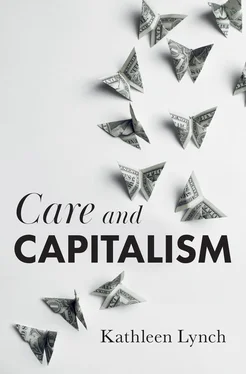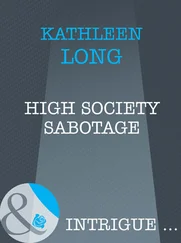Recognizing the multiple sites of human productivity, politics and cultural engagement compels us to recognize the household as a major site of production of non-market services. It produces goods and services that are arguably equivalent, in volume of outputs and numbers of people involved, to the formal economy (Folbre 1994); the unpaid care work undertaken in the world by women aged fifteen and over was estimated in 2020 to be worth three times the value of the entire global technological industry (Oxfam 2020: 8). Capitalism, and especially the capitalist economy, may be hegemonic but they are not monolithic and incontestable. Neither is the capitalist economy (specifically the relations between labour and capital) the only political and social space for the generation of action or resistance to the social injustices of capitalism (della Porta 2017). Classed and related inequalities are produced and reproduced not only in the market economy, but in the multitudinous economic, cultural and social sites that are aligned with it, and sometimes against it. There is more than one economy in a capitalist economy (Ferber and Nelson 1993; Folbre 1994, 2001, 2020; Gibson-Graham 1996; Federici 2012). And meaning-making is not confined to economic relations alone. People have a care consciousness (Crean 2018) as well as a gender, class, racial or sexual consciousness that informs their decisions. Things matter to people outside of formal politics and the economy (Midgley 1991; Sayer 2011).
There is a need to examine the possibilities of socialism (Streeck 2016: 234) and ‘envision [both] local and proximate socialisms’ (Gibson-Graham 1996: 264) and new feminisms, new types of revolutionary action that are built on foundations that must involve challenging exploitative relations within the economy in practice but are not confined to these.
There are many sites inside and around the capitalist nexus where transformative interventions can occur. One of those sites is affective care relations, those relations that produce, reproduce and repair the world relationally (Tronto 1993). These operate not only at the micro level of the local environment or family, but also at the meso and macro level of public institutions, multilateral agencies, community and voluntary organizations and the state. While the care relations that have coproduced humanity over thousands of years vary in cultural form, they have cultural purchase. Even if they are not named and claimed in public or celebrated, they exist in the realms of the care underworld in the form of care consciousness (Dodson 2010; Crean 2018) even among children (Luttrell 2020); people know what care relations matter to them. In many respects care is a kind of ‘cultural residual’, an area of human life, experience and achievement that the dominant culture neglects, represses and cannot even recognize for its political salience (Williams 1977: 123–4). Care relations are active in the subaltern world; they are the relations wherein people coproduce each other as human beings. But they operate in a subterranean sphere, without political ‘citizenship’, as they lack a political name and a political voice. Like other cultural residuals, however, they can and do influence current cultural processes (Williams 1977: 122). It is for this reason that they should be claimed, named and made visible intellectually and politically. The dilemmas and contradictions of doing loving, caring and showing solidarity 10are spoken of daily in kitchens and bedrooms, in crèches and schools, in staffrooms, in union meetings, in canteens, tea rooms, coffee houses and pubs, in hairdressers, in cars, buses and trains. It is time to open this affective cultural residue of hope to provide a countervailing narrative to subvert the neoliberal message.
Affective relations of love, care and solidarity: unincorporated residuals
Because no dominant social order can erode and erase all human practice, energy, and intentions (Williams 1977), neither can neoliberal capitalism. While capitalism has commodified much of the care world, it has not been able to incorporate it completely, not least because certain forms of care relations are non-commodifiable; they are based on intentions and feelings that are voluntarily given and/or are non-substitutable (Lynch 2007; Mol 2008; Flores 2013; Cantillon and Lynch 2017).
Care relations are unincorporated residuals in Raymond Williams’ terms; they remain outside and, for the most part, in opposition to legitimated cultural and party politics. Because these relations have not been fully incorporated, they lack status as political subjects, being regarded as apolitical, private and personal family matters (Okin 1989; Kittay 1999; Held 2006). It is because they have been disregarded, unaligned and unincorporated that affective care relations matter as potential sites of resistance. They are waiting to be articulated politically, to be mobilized and organized, as the co-creation and nurturing of relational life are dependent on them. Affective justice is an everyday concern for many, many millions of people owing to the care crises of the twenty-first century (Fraser 2016; Dowling 2021).
While the power of capitalism to reinvent itself and incorporate resistance is ubiquitous (Boltanski and Chiapello 2005), and seemingly overwhelming (Streeck 2016), meaning-making does not take place solely within markets. People live extensive lives outside the capitalist economy where non-market meaning and values are also materially created, especially through caring. There is scope for developing alternative thinking, new paradigms of justice and social action built around affective relations (Gibson-Graham 1996). If we put capital–labour relations at the centre of all meaning-making (Gibson-Graham, Cameron and Healy 2016: 194), we undermine our capacity to think outside that framework.
1 1 Indeed, all living species, and the Earth itself, cannot survive without care.
2 2 Doxas are unarticulated assumptions, powerful but hidden from view, because they are taken for granted and accepted. They are ‘that undisputed, pre-reflexive, naive, native compliance with the fundamental presuppositions of the field’(Bourdieu 1990: 68).
3 3 Emphasis in the original.
4 4 To make the text less cumbersome, the collective noun ‘care’ will be used regularly to refer to the three different forms of care and the contexts in which care happens, namely primary, intimate, love labouring relations; secondary relations of care, both paid and unpaid, professional and non-professional; and tertiary relations of solidarity at the political level with personally unknown others. For a more detailed discussion on the different forms of care see Lynch (2007) and Lynch, Baker and Lyons (2009).
5 5 Though the rise of capitalism is commonly associated with the French and American revolutions of the late eighteenth century and the industrial revolution of the late eighteenth and nineteenth centuries, much of the financial and infrastructural apparatus that we associate with capitalism, in the form of debt, banks, bond markets, shares, brokerage houses and speculative bubbles, preceded factories and wage labour and even the science of economics itself. Capitalism had found very visible expression in the age of European-led capitalist empires from the late fifteenth century onwards (Graeber 2011). European powers, ravaged by plagues, the Black Death and war, sought wealth and the alleviation of war debt through conquest and invasions especially in the Atlantic region (Patel and Moore 2018). The capitalist mantra of ‘growth’ was realized in the form of profit-led slave trading, arms trading or drugs trading that was (and is) deeply abusive, long before factories were established in the industrial cities of Europe (Graeber 2011: 307–60). I would like to thank my UCD colleague Ruben Flores for bringing Graeber’s work to my attention.
Читать дальше












